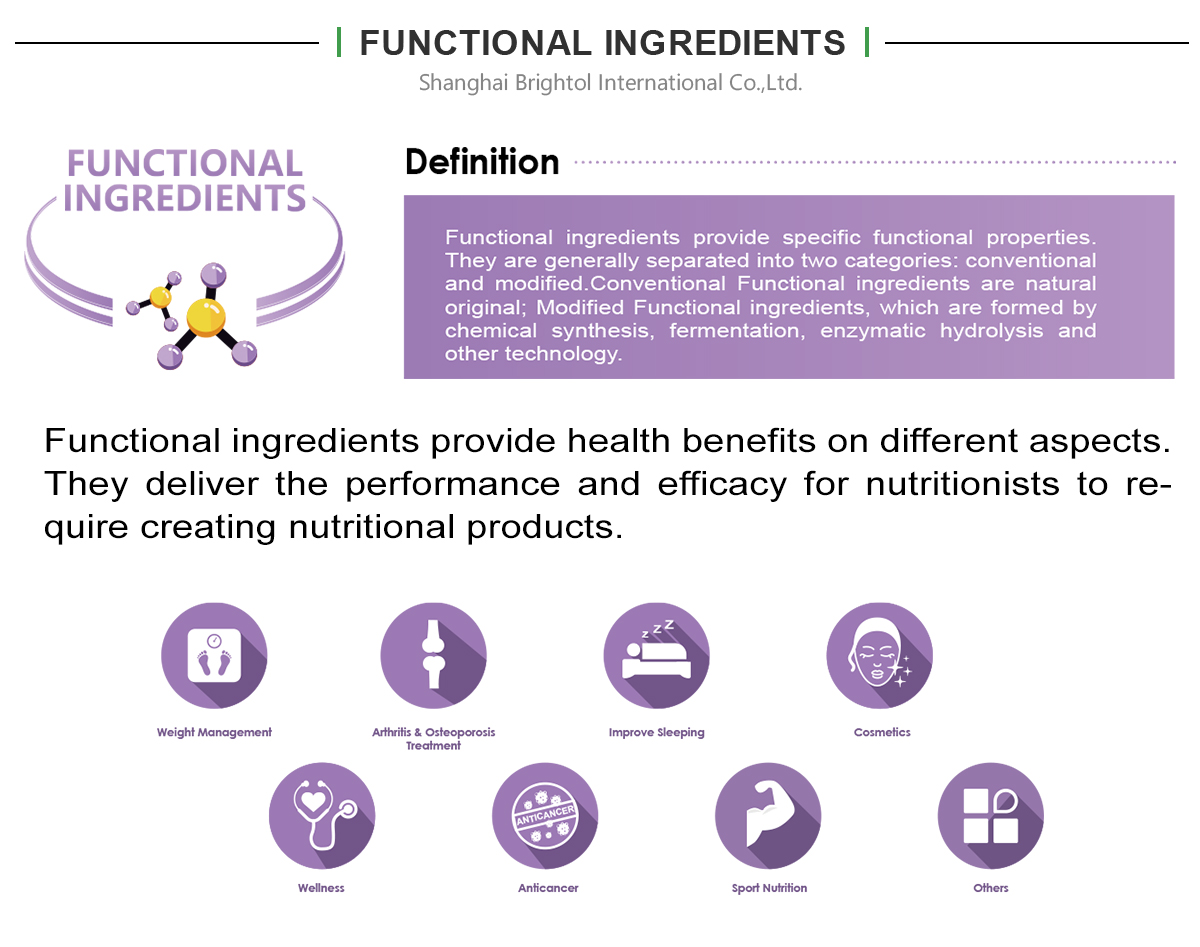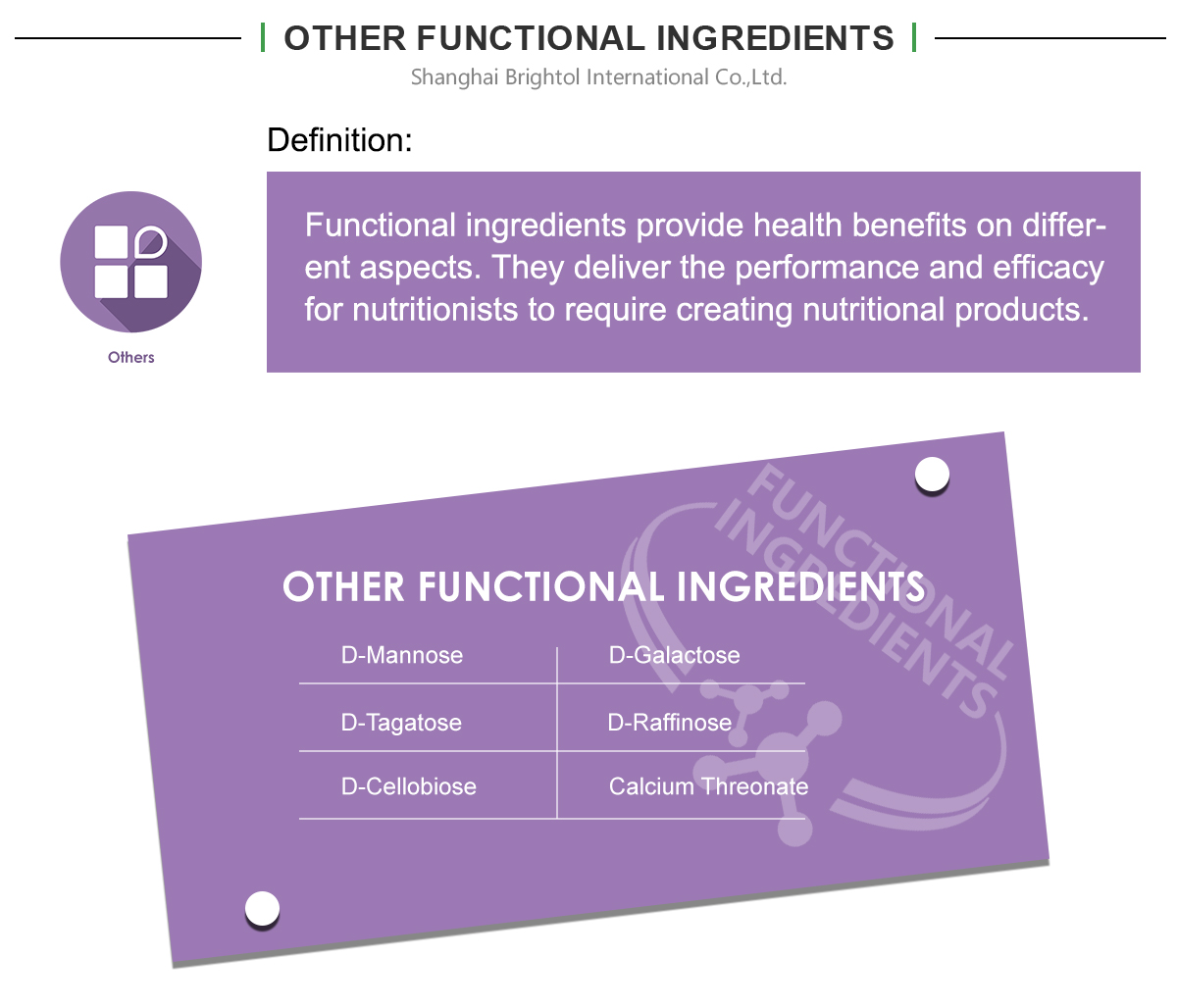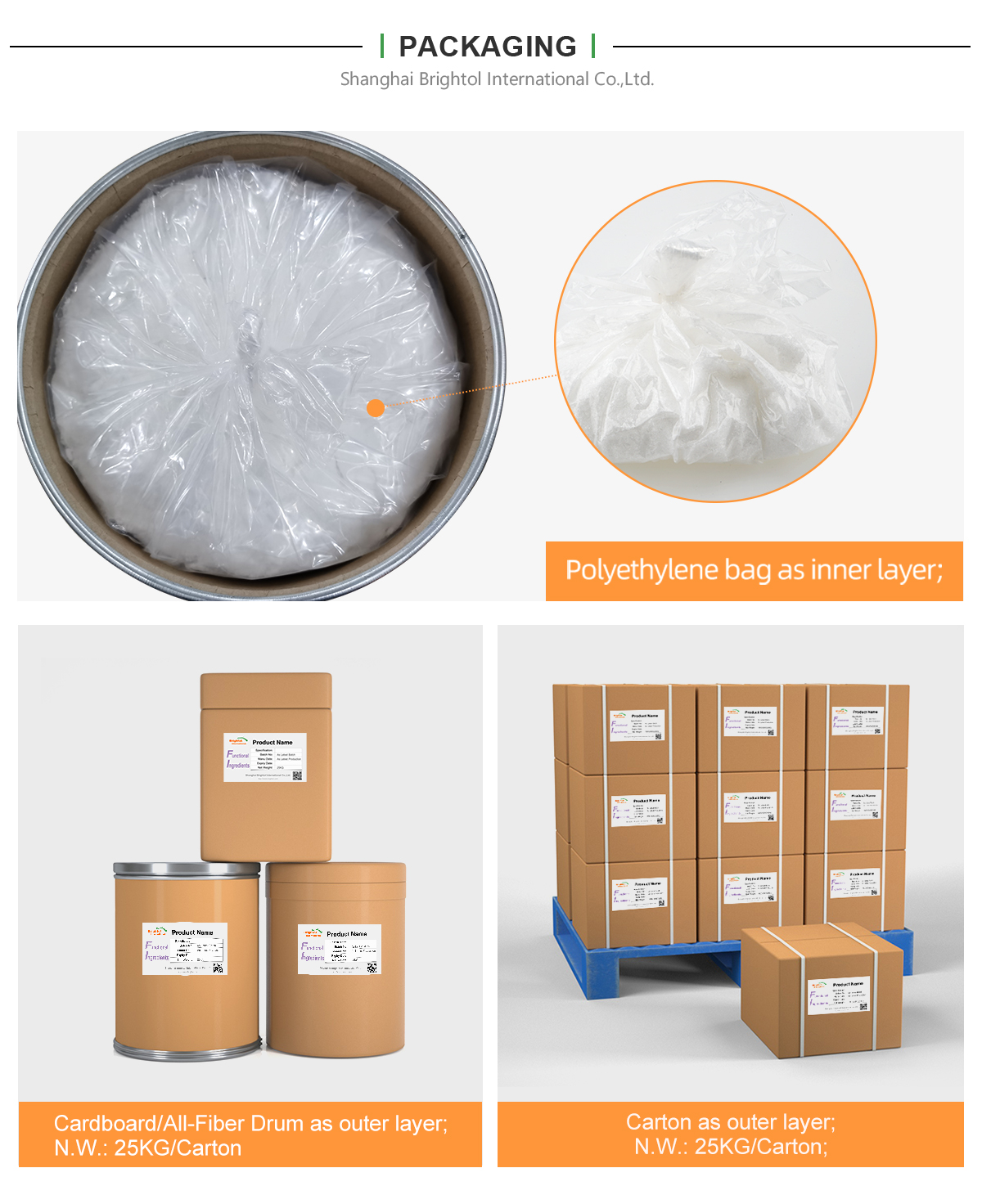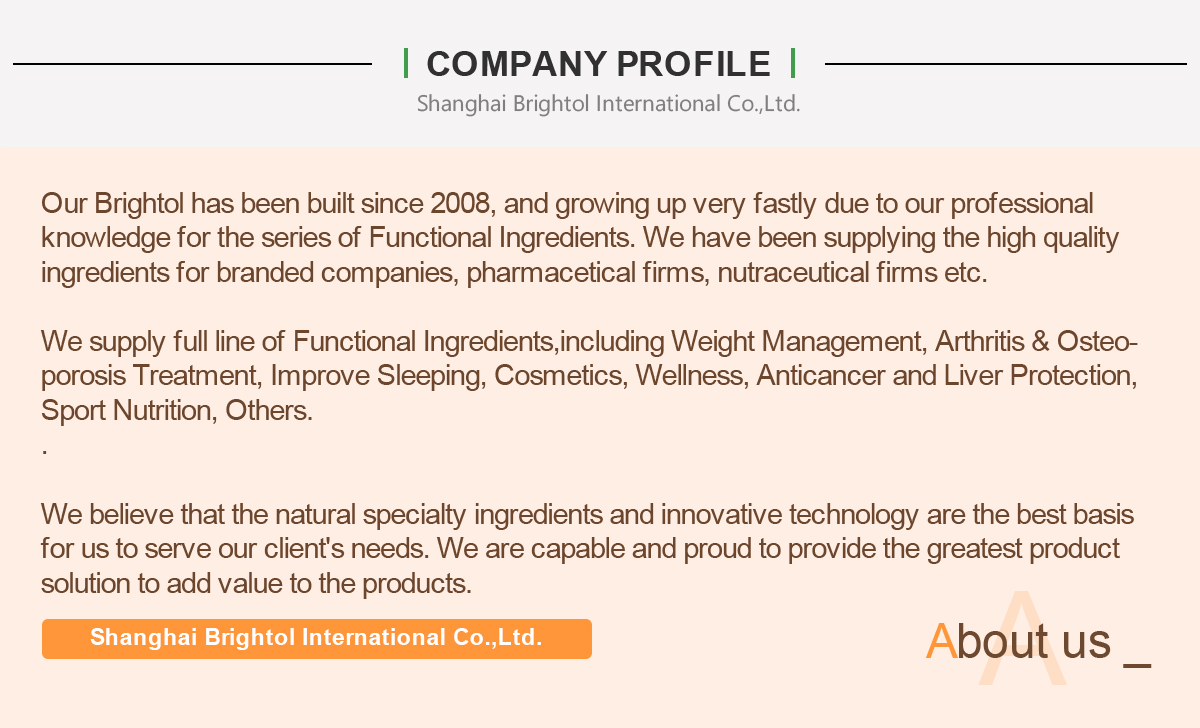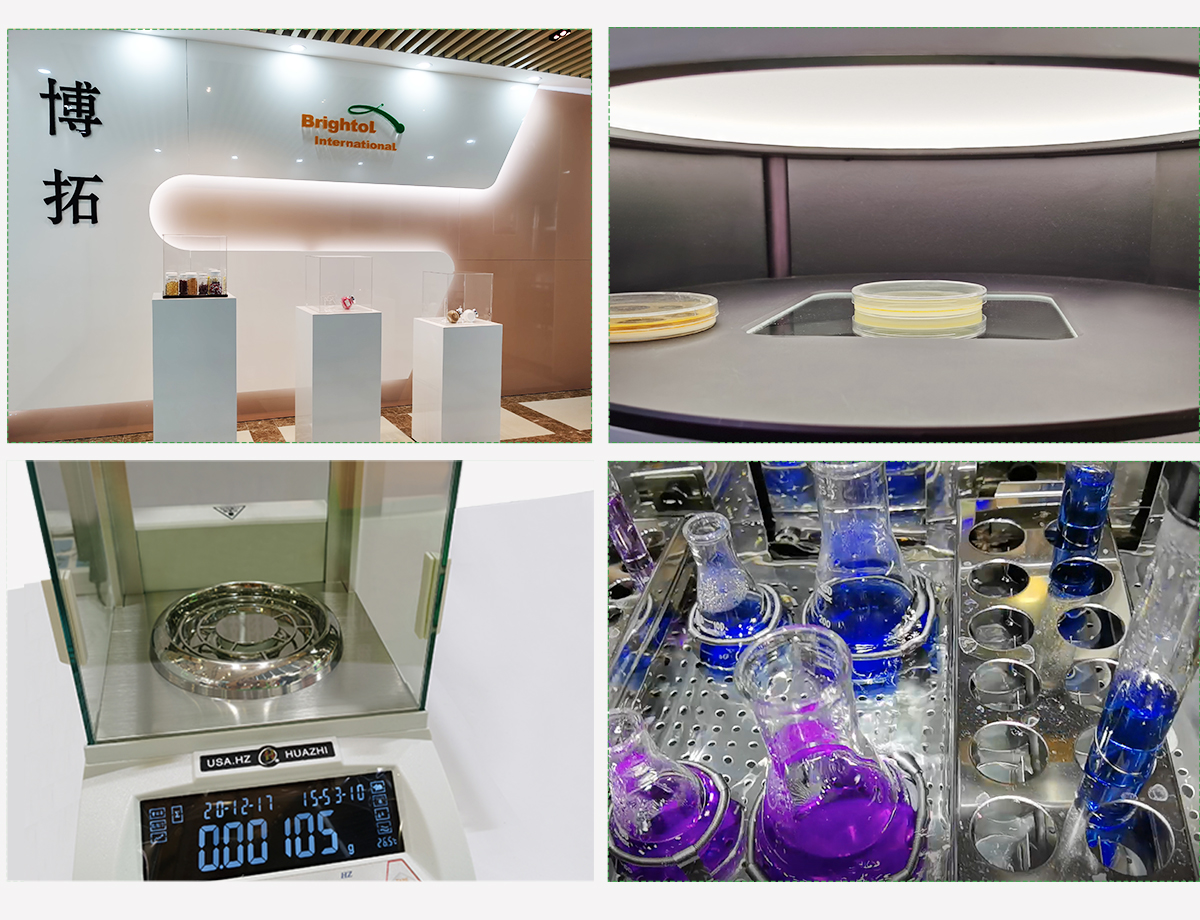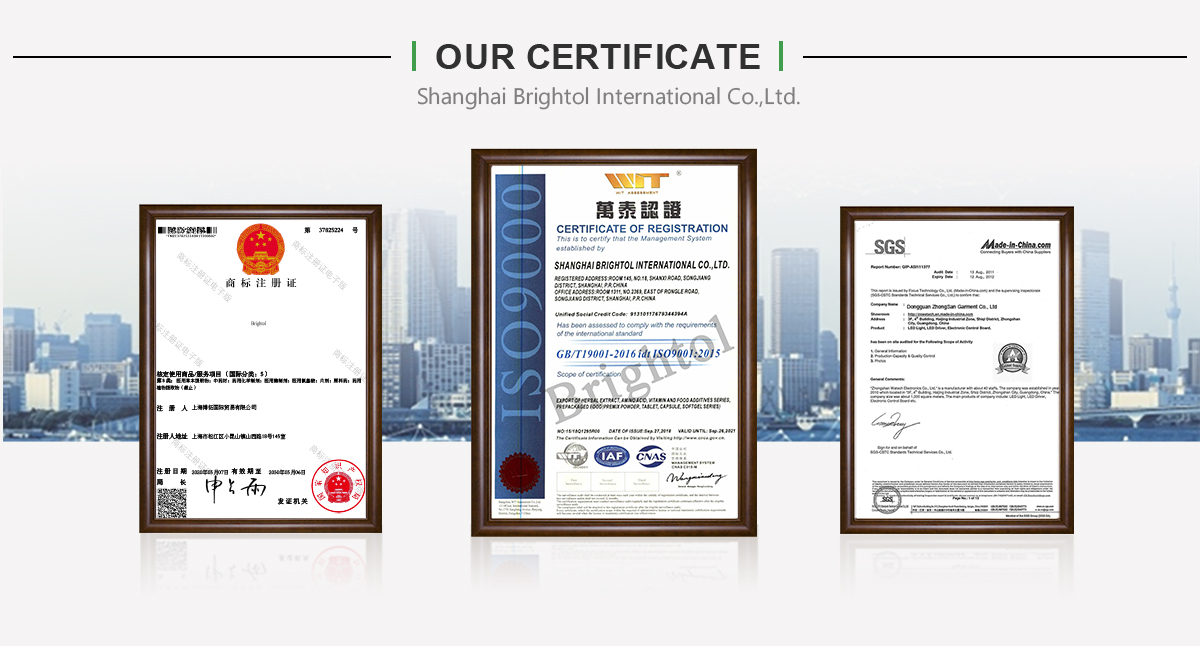

Product Name: D-Tagatose
Molecular Formula:C6H12O6
Molecular Weight: 180.16
CAS No.: 87-81-0
EINECS: 201-772-3
Description:
D-tagatose is a sweetener that’s approximately 90% as sweet as table sugar. But along with containing lower amounts of calories and net carbs than sugar, D-tagatose is also a low glycemic index food.And unlike most sweeteners, D-tagatose does not promote cavities. As a result, the US Food and Drug Administration has approved D-tagatose as a tooth-friendly ingredient.


Product Name: D-Tagatose
Molecular Formula:C6H12O6
Molecular Weight: 180.16
CAS No.: 87-81-0
EINECS: 201-772-3
Description:
D-tagatose is a sweetener that’s approximately 90% as sweet as table sugar. But along with containing lower amounts of calories and net carbs than sugar, D-tagatose is also a low glycemic index food.And unlike most sweeteners, D-tagatose does not promote cavities. As a result, the US Food and Drug Administration has approved D-tagatose as a tooth-friendly ingredient.
As far as its chemical structure, D-tagatose is an isomer of fructose. Isomers have the same molecular formula, but different arrangements of atoms.D-tagatose occurs naturally at low levels (no more than 3.5 grams per kilogram) in apples, pineapples, oranges, raisins, dates, pasteurized cow’s milk, and various other whole foods.But for industrial production, most D-tagatose manufacturing uses enzymatic conversion of lactose from milk to obtain D-tagatose.
Overall, the nutritional properties and other benefits of D-tagatose make it an attractive sugar substitute.
D-Tagatose Nutrition Facts
As a low-calorie sweetener, it contains 1.5 calories per gram (per US labeling guidelines) or 2.4 calories per gram (based on EU labeling guidelines).D-tagatose has about 40-60% less digestible calories than sugar and other simple carbs. rom those of sugar, too.
Health Benefits:
1. Low Glycemic Index and Low Net Carbs
2. Prebiotic Properties
3. Short Chain Fatty Acid Production
4. Blood Sugar Lowering Effects
